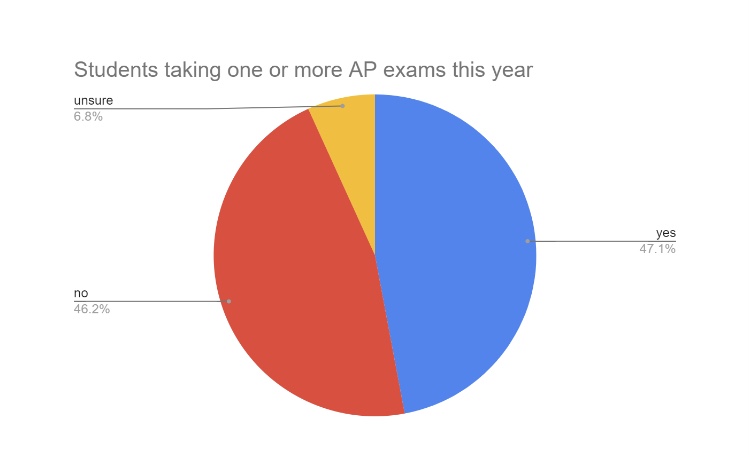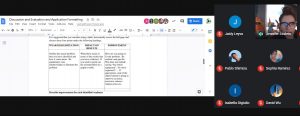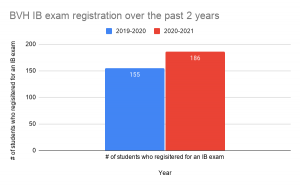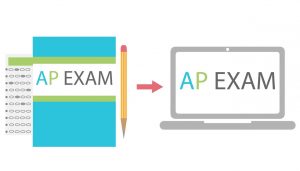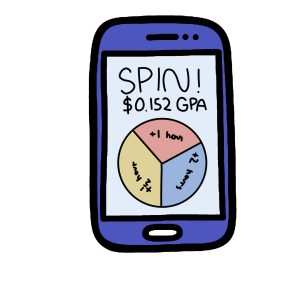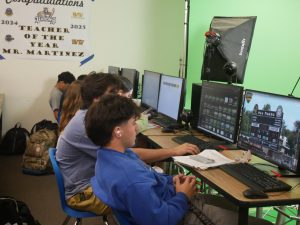College Board rolls out new changes for 2021 AP exams
For the 2020-2021 almost half of BVH students are taking an AP exam. 47.1 percent of students are taking an AP exam while 46.2 percent are not and 6.8 percent are unsure.
May 8, 2021
In a series of announcements beginning in February, the College Board announced that Advanced Placement (AP) exams will undergo new dates and administration formats as compared to last year.
With the exception of AP Music Theory and all foreign language exams, AP exams at Bonita Vista High (BVH) will be administered online beginning on May 18, with the latest exams taking place on June 11 after the end of the school year. Exams will contain all traditional testing components and will not be shortened as they were last year. Make-up exams will also be offered to all students who cannot test during the allocated dates.
These changes come amid the uncertain containment of the COVID-19 pandemic, which has taken a disproportionate toll across the country’s regions. The College Board offered school districts the option to host exams online or in-person, but due to high rates of COVID-19 in the South Bay region, the Sweetwater Union High School District opted for online examinations for a majority of AP exams.
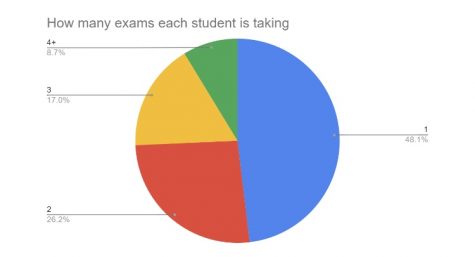
Teachers and students have expressed concern over the toll distance learning has taken on student motivation and preparation for AP exams. Senior Elyla Hamada said she felt remote learning has not adequately prepared her for her AP exams, though she noted she will continue to persevere with her teachers’ help.
“It’s been quite tough to study on my own for these AP tests. I’m grateful for my teachers for doing the best they can to help us. I’ve mastered certain topics [but] I still struggle with certain topics like math or government at times. I’m still underprepared for these tests, but I try my best to study on my own time, which is difficult too,” Hamada said.
Hamada also expressed disappointment that one of her exams, AP Calculus BC, will be administered after she graduates from high school.
“I think a lot of my peers share the same sentiment of disappointment as I do. But at the same time, we’re also just trying to accept it at this point, because we can’t really do much other than cancel our tests. I know a lot of my peers are not quitters, so we’re just [going to] push through with our exams, deal with it and hope we get a good result,” Hamada said.
For teachers, distance learning has also posed challenges, particularly with reviewing AP course content. AP Human Geography and Human Geography teacher Robert Tucker said remote learning has forced him to focus on essential curricula while neglecting certain activities to best prepare students for their exams.
“I’m focusing on content that they will most likely see on the AP exam. For example, there’s an assignment where I’m teaching my students about folk and pop culture, and we look at the song “La Bamba” because it’s a good example of how folk culture sometimes [carries] over into pop culture,” Tucker said. “I would enjoy [doing other activities that] my students would have fun [with], but the reality makes it difficult to assign projects.”
Despite the challenges, Tucker believes the later exam dates will give his students more time to review and perform well on the AP exam. Tucker’s passing rate last year in remote learning, when all exams were shortened, was 71 percent, which Tucker said gave him confidence in his students’ capabilities this year.
“The beauty is that [students have] more time to review. I asked [my students], ‘What content do you feel we need to go back and review?’ I [used] a Google form and I’m able to tailor my review with them. This year I have high hopes that my results will be higher than average,” Tucker said.
BVH AP Coordinator Jason Josafat noted that exams will also be graded relative to how students perform nationally given the circumstances of the pandemic or, according to Josafat, “more fair to how the student performs.”
“I think more than anything that students have adjusted to the [later exam dates] now that [they’re] known well ahead, and that [students] are going to be ready for [their exams] because they know the importance of it towards college credit,” Josafat said.
Josafat stressed the importance of perseverance during a time of upheaval. Despite the general uncertainty students have faced throughout their academic journey in the pandemic, Josafat said he has faith in students to “succeed” in their AP exams and rise above their circumstances.
“Our students have persevered through the pandemic to be prepared. When the AP exams are given, whether it’s in early May or in early July, I think that BVH students are fully prepared for this year and beyond,” Josafat said.
Correction: May 14, 2021
An earlier version of this article misstated the name of BVH AP Coordinator Jason Josafat. He is Jason Josafat, not “Joseph.”

